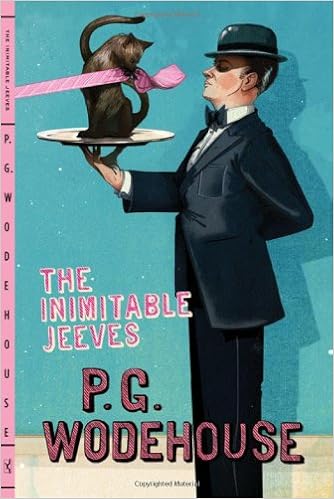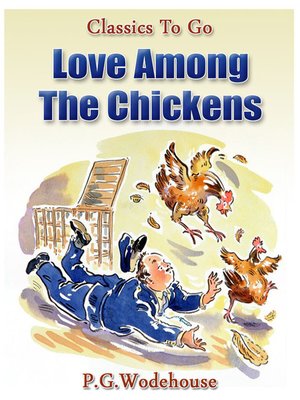I love so many musicals that it's impossible to decide which one I like best. This one might not be at the top of the list, but it's certainly in the top ten.
A Gentleman's Guide to Love and Murder is a 2012 musical based on the 1949 film Kind Hearts and Coronets, which in turn is based on the novel Israel Rank. I haven't read the novel, but I have seen the film. In some ways the musical sticks closely to it -- most notably, almost an entire family (including the women!) are played by the same actor.
I didn't recognise any of the cast, so on to the plot.
Like the film, the musical starts with the main character in prison for murder. The rest of the show explains how he got there. Two years earlier, Monty Navarro learns that his recently-deceased mother was actually an aristocrat who was disowned by her family. He's ninth in line to become an earl. So he decides to move up the line of succession by murdering everyone in front of him. Hilarity ensues, impossible though it sounds.
Now, a few of my thoughts while I was watching it.
For some reason our "hero"'s name has been changed. So has the surname of the family. But Sibella's name is unchanged. Why?
There are a lot of songs. And they're all incredibly catchy. (I caught myself humming "A Warning to the Company" while washing dishes.)
The staging of the reverend's death is frankly ridiculous. I know it's a black comedy, and a stage performance, but how did anyone think "staggering around the stage like a drunkard" was a convincing way to show "falling to his death"?
In the same scene Monty goes from acting out what happened, to sitting in his prison cell and writing his memoirs. The way he has to frantically rush from one part of the stage to the other, in full view of the audience, struck me as incredibly amateurish and better-suited to high school productions than Broadway. Couldn't they at least dim the lights to show the scene had changed?
That massive... curtain... thing in the middle of the stage leaves the actors with very little room to move around it. I spent several scenes expecting someone to trip or bump into it.
When I was annoyed or puzzled by the blocking I frequently found myself picturing how I'd stage a performance of this musical. (I suppose if I can't find any other job I could always try to get work as a theatre director!)
All right, so a black comedy isn't exactly the place to look for character development, but Sibella's decision to marry Lionel when she knows she won't be happy makes no sense. Monty just asked her to marry him, she knows he has money, and she certainly doesn't love Lionel, so... why?
For some reason Edith is renamed Phoebe. So Sibella and Lionel are the only characters to keep their names from Kind Hearts and Coronets. Again, why? If they were changing names anyway, why leave those two the same?
"Inside Out" had me in stitches XD A love song while someone's dying in the background should not be funny. But a love song where one of the singers is the murderer, about how the world would be better if we could see people's true natures? While the victim runs around chased by bees? Priceless!
Phoebe is Monty's cousin here, unlike in the film. I was confused. Was she going to become another victim? (Nope; she's one of the few D'Ysquiths Monty doesn't kill.)
All but two of the murders happen in the first act. Unfortunately, this means that the first act is much longer than the second. Too long, in fact. The second act feels incredibly rushed as a result.
"Why Are All the D'Ysquiths Dying?" is wonderfully morbid and funny. And it has some of my favourite lines in the show: "What a tasteless way of showing off!", "To lose one relative one can certainly forgive. But how can you excuse losing two or three or four or seven?", and "I can't imagine missing someone less." (Perfectly sums up my reaction to news of some people's deaths!)
Phoebe proposing to Monty while Sibella is in the house made me giggle even while being irritated by Monty and Sibella. I prefer the film's version of this sordid mess to the musical's. At least the film made me feel sorry for Edith/Phoebe; she did nothing to deserve being married to a serial killer. Here I was just impatiently waiting for the inevitable next murder and Monty's arrest.
The circumstances of Monty's arrest are different here. He's arrested for murdering the earl, and Sibella and Phoebe both pretend they're the murderer to get him released. The part that really annoyed me about this was when it's suddenly revealed Miss Shingle was the murderer this time. That comes out of nowhere and makes no sense 😒
Weirdest of all is the twist ending that there's another D'Ysquith still alive who's planning to kill Monty. I prefer the film's ending, especially the ambiguity about whether or not his memoirs were discovered.
Overall the musical is thoroughly entertaining and frequently very funny. The good parts outweigh the bad, and I love all of the songs!
Is it available online?: Yes, but I'd better not say where.
Rating: 8/10.

























